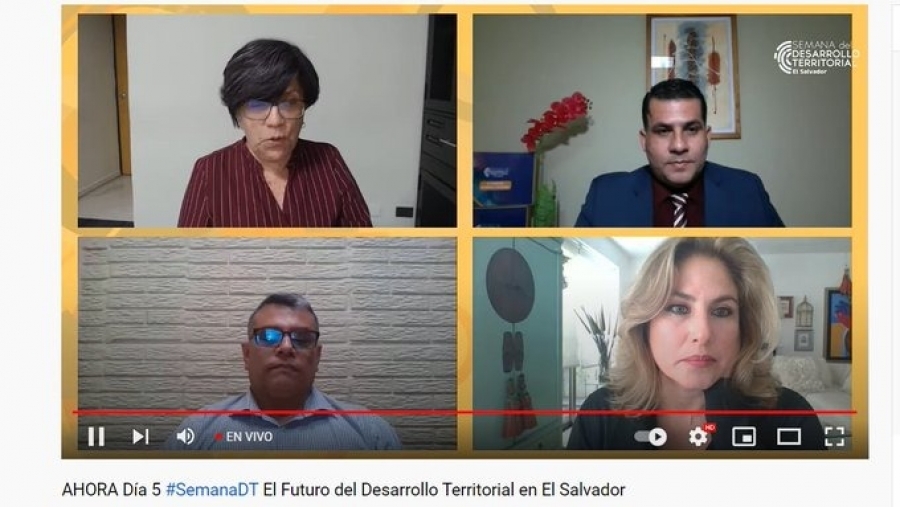There is a multidimensional inequality gap: Every day 16 women are sexually assaulted. For every 100 children attending school, 5 come from poorer households. Women spend more than twice as much time at home as men", said Cabrera.
There are four valid arguments about the role of the State in territorial planning, for example, and the effects of market forces, the defects in the capacity for coordination, the market as a mechanism for allocating resources acts in a short term time horizon, but territorial planning and environmental problems are medium term processes, these are some of the arguments. "The pre-tax can be a vehicle, we are more inclined to an inclusive fiscal policy", he specifies.
The second keynote address was given by Iliana Segovia, representative of the CODET Network, "Talking about territorial development in El Salvador is a huge challenge", she said at the beginning of her speech.
The situation of economic dynamics in the territories suggests that, according to World Bank data, the poverty rate is expected to increase by up to 5.9 percentage points. GDP contracted significantly by 7.9% in 2020. "Both the World Bank and the Banco Central de Reserva(BCR) estimate that the economy in El Salvador will grow 8% in 2021 and 4% in 2022", she argued. She also showed that diversification in innovation in MSEs was key to support this sector, which was economically affected by the Covid-19 pandemic.
"Facilitate the conditions to access investment opportunities, advice, technical assistance and logistical support to be able to carry out their initiatives", Iliana Segovia made reference to the support that MSEs require recovering their economy. It is necessary to "establish low-interest credit lines with public and private institutions to inject liquidity to economic and entrepreneurial initiatives", emphasized the specialist as part of the challenges that must be faced to bring development to all the territories of El Salvador.
The challenges: "it is important to retake the accumulated experience related to the mission, vision and functions of institutions such as ISDEM, COMURES, FISDL", recommended Iliana Segovia in an analysis of the Future of Territorial Development in El Salvador.
Seek dialogue among all stakeholders
As guests on the stakeholder panel were Beeddy Botto, Mayor of Candelaria de La Frontera; Fermina Cárdenas, representative of Grupo CASSA; Raúl Cárcamo, from FAO El Salvador; and Rommy Jiménez, from FAO El Salvador, and Rommy Jiménez of the CODET Network as moderator.
"It is a call to differentiate between rural and urban, to break that gap of who is who. Not to have that vision of what I am going to do in the urban and the rural, we must move forward so that the development of our municipalities grows", Beeddy Botto, mayor Candelaria de La Frontera.
"It is not only the work of the municipality, but also the role of private enterprise and citizens. It is necessary to humanize the policy that consists in the fact that the population must move forward and we are all actors. Today we are committed to look for associativity and approaches. This is what we need to achieve to bring the development we all need", said the mayor of Candelaria de La Frontera, Beeddy Botto.
Mapping in order to organize
"One of the challenges that mark and that cannot be taken out of the process of territorial development is knowledge. It is important to have a map for decision making and to make efficient use of resources", says Raúl Cárcamo of FAO El Salvador.
"Generating economic, social and environmental information is key to territorial development. Articulate agendas among institutional actors. Encourage governance that promotes planning processes in the short, medium and long term".
 English
English  Español
Español 
